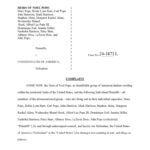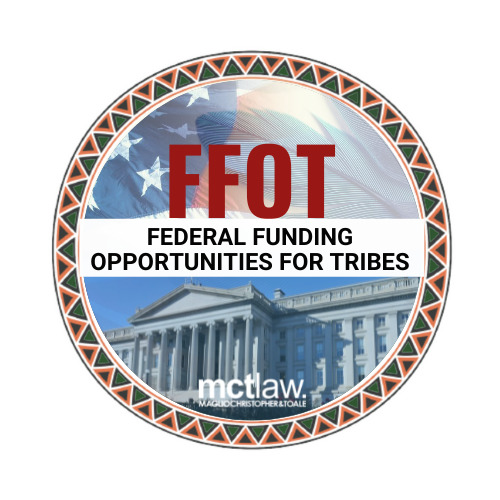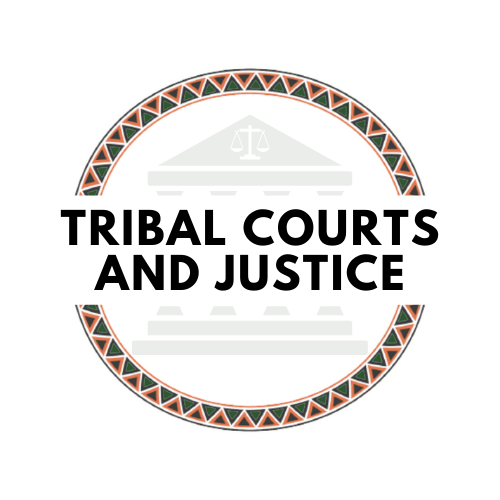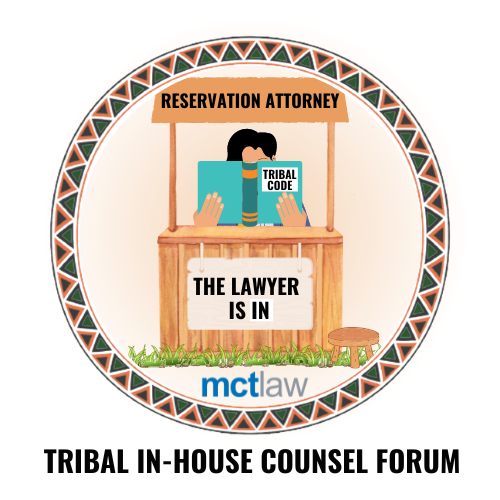

FEDERAL INDIAN LAW, TRIBAL LAW,
AND BUSINESSES IN INDIAN COUNTRY
The attorneys at mctlaw have extensive experience helping tribal leaders and businesses navigate the legal challenges facing Indian governments nationwide. We represent tribes of all sizes across Indian Country on gaming issues, tribal governance, code drafting, trust land acquisitions, child welfare, natural resource management, and economic development.
Our team has worked in high level positions at the Department of Interior, Division of Indian Affairs, the National Indian Gaming Commission, and as in-house Counsel.
Our goal is to ensure that our tribal clients succeed as sovereign governments. Find out how we can help you.
Practice Areas
- Breach of Trust Claims
- Federal Funding for Tribes
- Federal Recognition
- Federal Takings and Tribes
- Fee to Trust Land Acquisition
- Indian Gaming
- Misuse of Railway Easements
- Tribal Governance and Indian Sovereignty
Recent Accomplishments
- Assisted the Native Village of Eklutna’s Gaming Authority with opening its new Chin’an Gaming Hall near Anchorage, Alaska
- Assisted the Sauk-Suiattle Indian Tribe of Washington State in planning its new Two Rivers Casino, including writing a new Gaming Code, obtaining all necessary approvals from the National Indian Gaming Commission, and negotiating a Class III sports betting compact
- Represented the United Keetoowah Band of Cherokee Indians and the Kialegee Tribal Town in Class III gaming compact litigation
- Wrote the Gaming Code for the United Keetoowah Band of Cherokee Indians.
- Revised the Habematolel Pomo of Upper Lake Tribal Gaming Commission’s regulations
- Advised Marnell Gaming with regard to its Indian gaming operations in Alaska and Washington State
- Represented the Sauk-Suiattle Indian Tribe in the U.S. v. Washington treaty rights litigation
- Represented a group of Choctaw allotment owners in a breach-of-trust case involving oil & gas leasing under the Stigler Act
- Helped two tribes in Minnesota open and regulate their tribal cannabis dispensaries
- Obtained a favorable settlement for two former Councilmembers of the Stockbridge-Munsee Community Band of Mohican Indians in Tribal Court enrollment litigation
- Wrote a development plan for the Housing Department of the United Keetoowah Band of Cherokee Indians, which then received over $5 million for tribal elder housing
- Obtained a federal court victory for the Chief and Second Chief of the Alabama-Quassarte Tribal Town in tribal leadership litigation
- Assisted the Mattaponi Indian Tribe in writing and adopting its first Constitution and modern Election Code
- Represented the Sauk-Suiattle Indian Tribe in tribal court in Indian child welfare cases
- Re-wrote the United Keetoowah Band of Cherokee Indian’s Tribal Lending Code, Crimes and Punishment Act, Justice Department Act, Police Department Code, Civil Procedure Act, Criminal Procedure Act, and Appellate Procedure Act.
- Obtained significant federal funding for the United Keetoowah Band of Cherokee Indians’ Tribal Court
- Obtained millions of dollars from the Indian Health Service to establish the first Purchased and Referred Care program at the United Keetoowah Band of Cherokee Indians
- Negotiated an alcohol sales agreement with the State of Washington on behalf of the Sauk-Suiattle Indian Tribe
- Negotiated a property tax agreement with Snohomish County on behalf of the Sauk-Suiattle Indian Tribe
- Assisted the United Keetoowah Band of Cherokee Indians’ Housing Department with housing policy revisions
Tribal Clients We Have Represented
- United Keetoowah Band of Cherokee Indians in Oklahoma
- Sauk-Suiattle Indian Tribe
- Fond du Lac Band of Lake Superior Chippewa Cannabis Commission
- Native Village of Eklutna Gaming Authority
- Habematolel Pomo of Upper Lake Tribal Gaming Commission
- Mattaponi Indian Tribe
- Bad River Band of the Lake Superior Tribe of Chippewa Indians
- Kialegee Tribal Town
- Alabama-Quassarte Tribal Town
- Amah Mutsun Tribal Band / Amah Mutsun Land Trust
- San Carlos Apache Tribal Gaming Enterprise
Other Clients We Have Assisted with Indian Country Issues
- Marnell Gaming
- Kawasaki Motors
- Las Vegas Search Partners
- U.S. Department of Agriculture
- Indigenous Healthcare Advancements
Client Testimonials
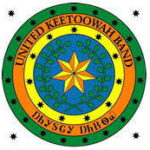
“Thank you Jeff, and the rest of the mctlaw staff for securing our Tribal seal which is a huge part of our identity, so this truly is a historic moment for us all. If you want to be the best, you need to surround yourself with the best! I’m ecstatic to be surrounded by each of you!“
Chief Jeff Wacoche
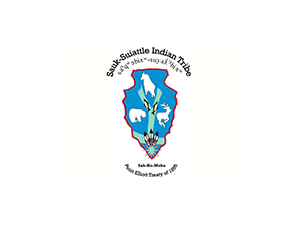
“The attorneys at mctlaw are easy to work with while still producing high quality results. They listen to our needs and take on many different issues and opportunities facing tribes today.“
Nino Maltos, II
Chairman, Sauk-Suiattle Indian Tribe

“The Indian law group at mctlaw promised a good deal for our tribal gaming regulation updates, and they delivered! We are very happy to have them on board now for a wide variety of Indian gaming compliance matters.“
Michael Icay
Chairman
Habematolel Tribal Gaming Commission
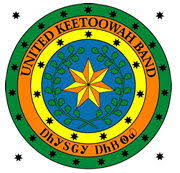
“The Indian law attorneys at mctlaw have been fantastic. They have really helped give new life to the UKB Tribal Court, both in terms of funding and the development of tribal law.“
Kristie Bradley
Tribal Court Administrator and citizen of the United Keetoowah Band of Cherokee Indians in Oklahoma
Meet Our Team
News & Blogs
- mctlaw Attorney Wins Case in Tribal Court: Judge Reinstates Tribal Membership
- Attorney Jeffrey Nelson to Argue on Behalf of Choctaw Allottees in Federal Case Alleging U.S. Breach of Trust Over Oil & Gas Leases
- Crow Tribal Family Alleges Horse Massacre was Breaking Point in Decades of U.S. Mismanaged Land and Ignored Treaty Duties in Federal Lawsuit
- Choctaw Allotment Owners Challenge Oil & Gas Leasing Practices Under 1947 Stigler Act
- Sauk-Suiattle Tribe Represented by Attorneys at mctlaw File Suit to Reclaim Ancestral Fishing Rights in Puget Sound Area
- What Does the DOJ Reclassification of Cannabis to a Schedule III Drug Mean for Tribes?
Join Our Linkedin Groups

Indian Gaming
The casino and gaming industry is a complex web of regulations and rules. Indian gaming adds an additional layer that can be nearly impossible to navigate. Our tribal gaming practice helps bridge the gaps between federal government, state government, tribe, business and consumers.
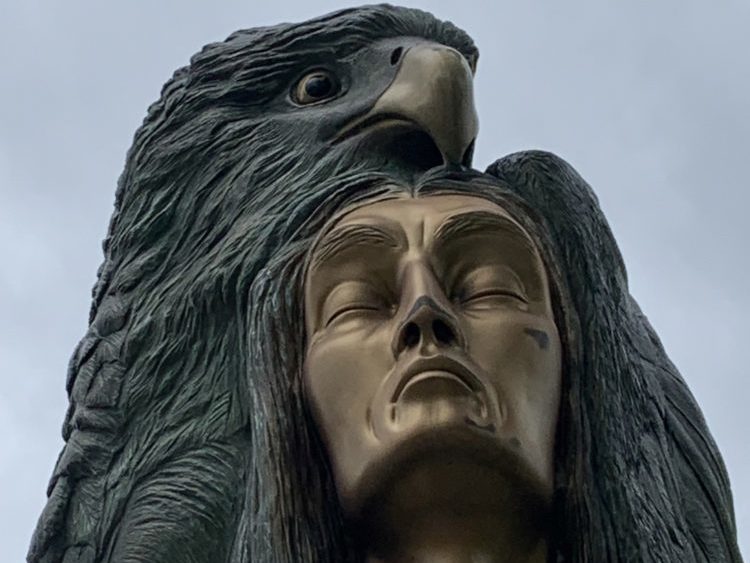
Tribal Governance and Indian Sovereignty
Tribal governments have the sovereign right to govern themselves and their lands, and to exercise that sovereignty in many different ways. mctlaw can help tribal governments protect those rights, uphold tribal sovereignty, and exercise it for the long term benefit of the tribe and its citizens. That includes:

Breach of Trust Claims
Breach of trust claims involve situations where the federal government has mismanaged an asset or property that it holds in trust for the benefit of a tribe. This can involve land leases to farmers or ranchers, oil and gas exploration and drilling, mineral mining, timber harvesting, trust fund investments, or in many cases–the lack of any of the above. In these situations, the tribe may bring a lawsuit against the federal government in the U.S. Court of Federal Claims and claim money damages in order to receive what it should have been receiving all along.
Client Gallery
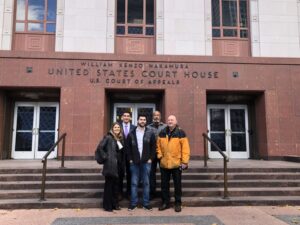
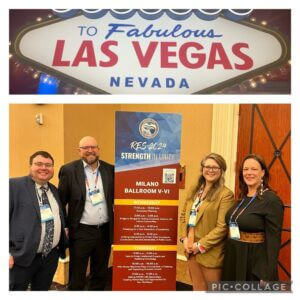





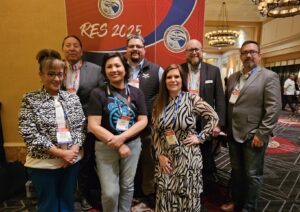

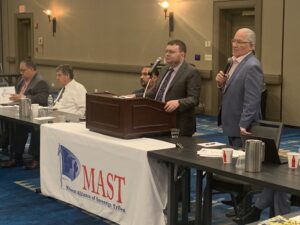





Content Reviewed by Jeffrey Nelson – Indian Law

Jeffrey Nelson leads the Firm’s Indian Law Group. He’s spent over 20 years of experience working in Washington, DC on Indian law and litigation matters, including as a Senior Attorney at the National Indian Gaming Commission and as an Assistant Solicitor at the Department of the Interior. Jeff now represents tribes across the country on Indian gaming and tribal governance matters. He also serves as the Assistant Attorney General for the United Keetoowah Band of Cherokee Indians in Oklahoma. Jeff earned his law degree at the University of Michigan Law School in 1997 and an LL.M. in Advocacy from Georgetown University Law Center in 1999.
This page was last updated:


Contact Us Now

As an experienced leader in these types of lawsuits, we were confident the firm would have the expertise. However, what surprised us most was the high level of excellent customer service from the firm’s staff!
Pat R.
I can’t recommend this firm enough. They have an outstanding team that truly care for their clients…I have been awarded a fair six figure settlement.
Nate M.
When I say “they went to bat” for me…this Law Firm literally did just that. They persevered to bring the hard-nosed Manufacturer to settle and provide me some recompense for everything I had to endure which led to this suit.
Me’Chelle






